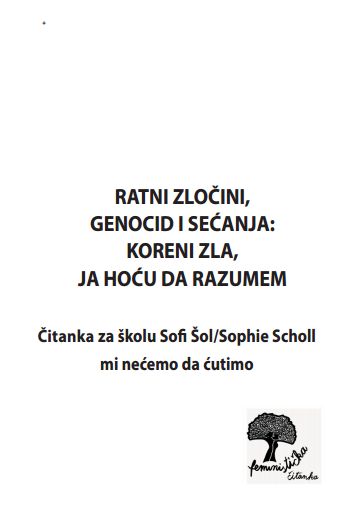
We kindly inform you that, as long as the subject affiliation of our 300.000+ articles is in progress, you might get unsufficient or no results on your third level or second level search. In this case, please broaden your search criteria.

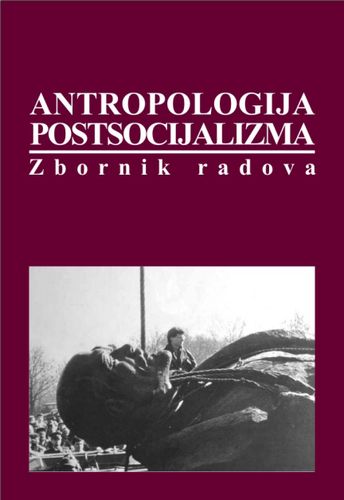
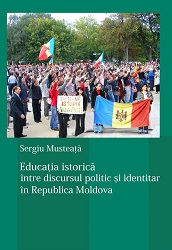
The work is the result of the project Geschichtslehrbücher zwischen politischer Propaganda, nationalistischen Konstruktionen und Wissenschaft. Untersuchungen zur Entwicklung des Schulfaches Geschichte in den posttotalitären Staaten Südosteuropas am Beispiel der Republik Moldau, der Ukraine und Rumänien started in 2005 and completed in 2008, implemented in partnership with „Georg Eckert” Institute for International Analysis of Textbooks and due to the financial support of „Gerda Henkel” Foundation, Germany.The work comprises the following parts: introduction, the role of history in society development, teaching history in the Republic of Moldova – between ideology and propaganda, conclusions and recommendations, sources and bibliography, summary in English and index of names, the main text being enriched with tables, annexes, and pictures.In Chapter I, The Role of History in Society Development, the author approaches several aspects regarding history as science, the relations between history and politics, the right of every citizen for access to authentic history, relations between history education and national identity, the role and importance of history in the system of education, the place of history curriculum in the national system of education and the importance of the school textbook in achievement of the educational objectives.In Chapter II, History Teaching in the Republic of Moldova: Between ideology and political propaganda, the following issues are discussed: the policy of the Communist Party in the Soviet times – pollution of history science, from the national idea to the national curriculum (1988/89-2001), development and publishing of the school history textbooks (1991-2009), history between reform and counter-reform (2001-2009) and history teaching in Transnistria separatist region.The author comes with the list of conclusions and recommendations. In the Republic of Moldova there is no unity and continuity in history teaching. Frequent interventions in history teaching have not allowed forming qualitative history education in citizens. For reconciliation in history teaching and historical content in the Republic of Moldova, some specific steps are to be taken in the following fields: politics, finance, and administration; publishing, curriculum design, and textbook development, as well as printing and dissemination of textbooks. Thus, the author recommends the Government of the Republic of Moldova: to carry out a series of actions through which they will ensure that education is a national priority; to provide a legal and legislative background for qualitative education; to develop mechanisms of public debates on educational policies; to bring contribution to the development of national publishing industry based on the principles of competition; to support research referring to textbook development and assessment; to promote and facilitate exchange of information regarding research in the field of curriculum and educational materials; to develop partnerships among governmental and non-governmental institutions expressed in partnership agreements, as well as agreements between two or more parties in the field of educational policies; to establish forms of regional cooperation in the field of history teaching in order to educate young generations for better understanding between neighbors; to promote mutual understanding among nations that would help understand everybody and fight prejudice and mutual outcast; to facilitate and encourage contacts among professional associations of historians and teachers at both the national and international level in order to allow exchange of experience, ideas, and suggestions on curricula, textbooks, teaching methods, and research in history.
More...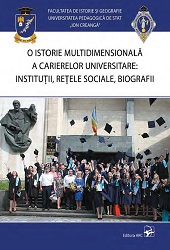
A collective book on history of the university careers, institutions, social networks, biographies, interviews from the Republic of Moldova
More...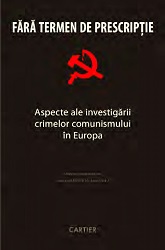
The book on Communist regimes in Eastern European countries
More...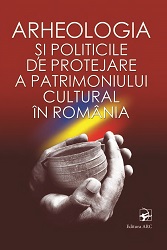
The book is a collection of papers on archaeological heritage preservation and management in Romania
More...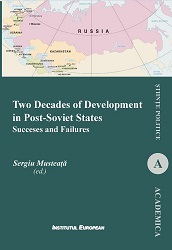
The book includes various chapters on post-soviet developments
More...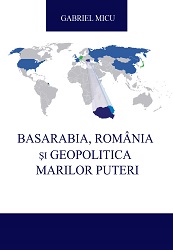
The book on Bessarabian problem, Romania and Geopolitics of the Great Powers
More...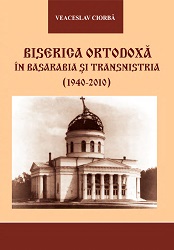
The on history of Church of Bessarabia and Transnistria (1940-2011)
More...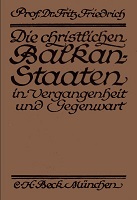
Published in 1916 by C. H. Beck (Munich)The small book offers the text of three lectures the author gave in Leipzig in November and December 1915. In the introduction, the author is noticing, that "among all the current war literature nowhere the topic of his book is really touched while, anyhow, whatever provides information is spread in numerous different works and articles." THE ORIGINAL BOOK IS PRINTED IN GERMAN FRAKTURA LETTERS. PLEASE HAVE A LOOK ON THE TABLE OF CONTENT TO MAKE SURE YOU'LL BE ABLE TO READ. The original has been published 2016 in Leipzig by C. H. Beck Publishing House.
More...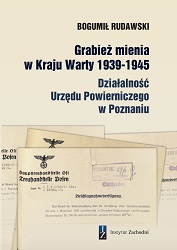
In 19391945, appropriations of assets from Poland’s citizens were a commonplace experience. Appropriations continued throughout the German occupation were part of the planned destruction of people’s existence. At the very beginning of the occupation various property rights of Polish citizens were limited by regulation, and property was seized by way of requisition or confiscation. In the Wartheland, as in all of Poland occupied by the Third Reich, appropriations took place on were a mass scale. They took two basic forms: robbery by German officials and civilians, and official expropriations, which were institutionalised. This second form proved to be more painful. Acts of appropriation were executed by purposefully established institutions of German state administration which organised and confiscated Poles’ assets. Of these institutions, the most important was the Haupttreuhandstelle Ost (HTO), or the Main Trustee Office for the East, which covered Polish lands incorporated into Germany and some other parts of the German Reich. The HTO had several branches in the incorporated lands. In the Wartheland there was established the Treuhandstelle Posen, which had a subbranch in Łódź (Treuhandnebenstelle Litzmannstadt). The HTO and its regional branches formed the main part of the German trustee administration (Treuhandverwaltung). Institutions of this administration had a monopoly on property confiscations. The basic tasks of these institutions were to confiscate non-agricultural property of Polish citizens and to administer it until it passed to its new German owners, who were German settlers.. The HTO and its units expropriated the property from Polish citizens; then property administrators were appointed, and finally the property was transferred to Germans, who were the only group entitled to property allocation. This organised property transfer was one of the most important measures to Germanise the land and “strengthen” the German countenance of the occupied territory. Appropriations of Polish-owned businesses facilitated (despite some limitations) the building of the foundations of the German socio-economic order. Such plunder was motivated by the prospect of material gains. However, racist theories and their introduction in the territories incorporated into the Reich played an important role. The assets seized by the HTO were primarily real property, namely homes, industrial enterprises, shops and small workshops. In transferring them to Germans, the HTO devised a number of administrative procedures which in a sense neutralised the appropriation process and made it appear to be a “normal” administrative practice. The Main Trustee Office for the East was established by Hermann Göring’s decree of 19 October 1939. This document was an attempt to secure Göring’s own economic interests in occupied Poland. The idea of a separate trustee administration was developed in the Office of the Four Year Plan, which Göring headed as plenipotentiary. At the time this was the most powerful economic office in the Third Reich. On 1 November 1939, an official communique was issued announcing the creation of the HTO. Its appointed head was Max Winkler. The activities of the HTO as the main body of the trustee administration can be divided into stages. The first stage lasted until early 1940. In this period the focus was on controlling and subordinating various acts of expropriation and ensuring the dominant role of the HTO in the confiscation process. During this time local branches of the Main Trustee Office for the East were developed. Trustee offices were established in Katowice (Kattowitz), Gdańsk (Danzig, then Gdynia/Gdingen), Ciechanów (Zichenau) and Poznań (Posen). The activities of the HTO did not cover the Generalgouvernement zone. There, on 15 November 1939, Governor-General Hans Frank issued an ordinance establishing a separate trustee administration. Thus the HTO was responsible for managing private property only in the Polish territories that had been incorporated into the Reich. Also at this stage a division of competences was made between Hermann Göring and Heinrich Himmler, as the latter also wished to participate in the expropriations. On 10 November 1939 it was agreed that Himmler would be responsible for agricultural property confiscations and the HTO for all non-agricultural assets. The second period lasted until 1942. Here, the activities of the HTO focused on actual confiscations of assets from Polish citizens. The gains were redistributed and transferred to Germans, who were moved in to settle in the occupied lands. At that time there were also plans to expand the trustee administration to cover the occupied Soviet territories. In 1942, the third ordinance on the HTO limited the sale of expropriated property. This marked the beginning of the HTO’s gradual decline. The main factor which paralysed its activities was that its employees were increasingly being conscripted into the Wehrmacht, and thus the HTO’s plans and activities could not be executed effectively. In addition, in 1943 Göring lost interest in the HTO. In the second half of 1944 the evacuation of the HTO’s branches and agencies began, which in effect meant that the trustee administration ceased working. The Wartheland was a “testing ground” for the organisation and execution of a planned and massive plunder of private assets as an element of economic and ethnic policies. The Treuhandstelle Posen began its operations on 6 December 1939, when its first manager, Hugo Ratzmann, was officially appointed. Initially the whole Wartheland territory was subject to the office’s operations. On 20 January 1940 a subbranch in Łódź was created. Nominally, this was subordinated to the office in Posen, but in practice it was independent and functioned as a separate establishment. On 1 May 1941 an agreement was signed whereby the Treuhandnebenstelle Litzmannstadt was made responsible for thewhole administrative district of Łódź while the office in Poznań was made responsible for the Poznań and Inowrocław (Hohensalza) administrative districts. The subbranch took an active part in the functioning of the Litzmannstadt Jewish ghetto. As a result of the establishment of trustee administration offices in the Wartheland, the appropriation of Polish assets was subjected to standardised criteria. Expropriations followed designed administrative procedures and were overseen by specialised German civil servants. The trustee office in Poznań carried on its operations until January 1945. The trustee office in Posen performed four basic tasks in expropriating non-German assets in the Wartheland. These were: registration and record-keeping of assets, confiscations, provisional administration of confiscated assets by trustees (Treuhänder), and redistribution of the assets. In its first months the office concentrated on its own expansion and on establishing its role as the most important and only institution carrying out expropriations on a mass scale in the Wartheland. Its systematic operations to take over businesses that had already been confiscated by other German authorities – mainly the Chamber of Commerce and district administrators (Landrat) – ended in 1940. At that time the plenipotentiaries for counties (Kreise) played a crucial role in strengthening the office’s position. They represented the office at county level, and were responsible for the registration of assets to be confiscated and for safeguarding already confiscated real and movable property on the office’s behalf. On the pattern of the HTO in Berlin, the trustee office in Poznań had two main departments. During the time of its most vigorous growth, its department of administration had six subdepartments, while the economic department had as many as twelve. Each subdepartment of the economic department was responsible for confiscations of defined types of assets. For example, subdepartment B IVa oversaw the appropriation of industrial enterprises, and subdepartment B V was responsible for craft workshops. Additionally, the diversity of assets taken over motivated the creation of several specialised companies, which acted as receivers of some of the confiscated assets. One of the most important companies was the Auffanggesellschaft für die Kriegsteilnehmerbetriebe des Handels (company for taking over trading enterprises for the benefit of war participants), which bought trading enterprises from the trustee office for German soldiers. Another was the Grundstücksgesellschaft für den Reichsgau Wartheland, GEWA (real estate company), which took control over residential land and properties. The takeover of Polish industrial enterprises, the larger ones in particular, was intended to strengthen the potential of German armament production and to increase the efficiency of the German economy in general. As a result of the trustee administration’s activities, Polish economic enterprises were not only confiscated, but also underwent concentration and transformation processes. This led to changes in the pre-war ownership structures. Many large and smaller enterprises were relocated. The equipment of manufacturing enterprises was destroyed and dispersed. The trustee office also closed and liquidated up to 37% of enterprises in the Wartheland, which it classed as unviable. These were mainly small trading firms and workshops, which were many people’s sole assets and source of income. On 17 February 1941 the second HTO ordinance was issued, and the whole institution was decentralised. The trustee office in Poznań , which until then had been subordinated directly to HTO headquarters in Berlin, was now subordinated to the Reichsstatthalter (governor) of the Wartheland, Arthur Greiser. In addition, HTO’s regional branches could no longer manage economic entities whose value exceeded 500,000 Reichsmarks – these would be managed instead by the authorities in Berlin. In the case of the Wartheland there were 133 such enterprises, which were left in the hands of Göring. According to archived documents, by May 1943 the Treuhandstelle Posen and Treuhandnebenstelle Litzmannstadt had confiscated over 49,000 industrial enterprises, trading establishments and workshops. By the end of World War II this number had risen to around 60,000. The real estate company Grundstücksgesellschaft für den Reichsgau Wartheland took possession of over 400,000 homes. In 1944 the value of the assets taken over by the trustee offices in the Wartheland amounted to 266 million Reichsmarks. Of all of the HTO’s branches, it was those in Poznań and Łódź that generated the highest proceeds: 12% of the HTO’s total proceeds, which by March 1945 totalled 2.1 billion Reichsmarks. To this sum should be added the value of assets taken over by dependent companies, and the value of large enterprises which were not included in the financial statements of the regional branches. Taking these into account, it can be estimated that the value of assets confiscated by the HTO in the Wartheland amounted at least to 450 million Reichsmarks. The plundering policy of the trustee administration caused the total destruction of the private sector economy and the pre-war ownership structure. The ruthless economic exploitation affected all spheres of socio-economic life. It ruined Poland’s national assets and the private property of most Polish families. It was not only material losses that Poles suffered. Excluded from political, cultural and economic life, they were exploited as cheap labour in German enterprises. The appropriation of Polish assets by the HTO and its branches greatly facilitated the ownership transformations and nationalisation of the entire economy in Poland after 1945, as it destroyed the institutional and personal continuity of ownership. The economic and social consequences of the HTO’s policies turned out to be extremely far reaching.
More...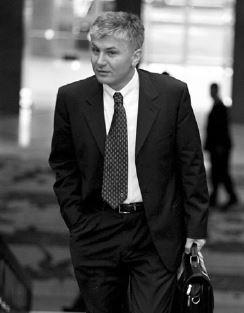
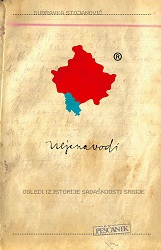
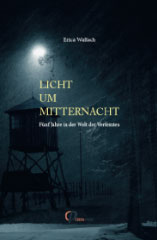
In this autobiographical book, Erica Wallach gives us a deep and personal insight into the experience of her five-year imprisonment. She was suspected of espionage and was sent to prisons in 1950 in the GDR and the Soviet Union as well as to the Workuta Soviet labor camp. Her husband, Robert R. Wallach, a soldier in the U.S. Army, and the their two children, waited in vain for her return to Paris, the Wallach family's place of residence at that time. They had no information about the reasons for her sudden disappearance and about Erica's whereabouts. The author describes the methods of totalitarian systems that are used to break prisoners in solitary confinement in order to obtain the desired confession from them. And she tells how she still managed to survive those years. This new, expanded edition has a German-English bilingual epilogue, written by Erica Wallach in the late 1970s and appearing here for the first time. <p> Erica Wallach gewährt uns in diesem autobiographischen Bericht einen tiefen und persönlichen Einblick in ihr Erleben jener fünf Jahre Inhaftierung, die Sie, der Spionage verdächtigt, ihrer Familie entrissen in Gefängnissen der DDR und der Sowjetunion sowie im sowjetischen Arbeitslager Workuta verbringen mußte, weil sie ihren Pflegeeltern Noel und Herta Field, die im damaligen Ostblock in Schwierigkeiten geraten waren, im August 1950 zur Hilfe eilen wollte und sich zu diesem Zweck nach Ost-Berlin begeben hatte. Ihr Ehemann, Robert R. Wallach, ein GI der U.S. Army, und die beiden gemeinsamen Kinder, warteten vergebens auf ihre Rückkehr nach Paris, dem Wohnort der Familie Wallach zu jener Zeit. Sie hatten keine Informationen über die Gründe des plötzlichen Verschwindens und erhielten keine Auskunft über den Aufenthaltsort von Erica Wallach. Die Autorin schildert jene Methoden totalitärer Systeme, mit deren Hilfe Gefangene in der Isolationshaft gebrochen werden, um von ihnen das gewünschte Geständnis zu erhalten. Und sie erzählt darüber wie es ihr trotzdem gelungen ist, jene Jahre zu überstehen. </p>
More...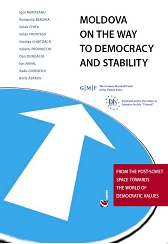
Since the disintegration of the USSR in 1991, Republic of Moldova has made clear progress towards the consolidation of its state, of its military and civil institutions, making itself notable on the geopolitical map of Europe. However, Moldova seems to be still scarcely present on the mental maps of the decision-makers from the West. Unlike the Baltic nations, that embedded themselves into the mind of the European public as a cohesive group of free nations, distinct from their poorer neighbors (Belarussians, Russians or Ukrainians, whit their more violent history after the disintegration of the Soviet Union), Moldova was approached with prudence if not completely neglected so that when important EU officials have remembered, after 2003, about the post-soviet origins of this republic, the Chisinau diplomacy felt offended. // The book provides a conceptual and analytic foundation for addressing the agenda of the security sector reform in Moldova. Given the tremendous tasks that have challenged Moldova in the last decade we all expect that the energy and commitment of its political, economic and cultural elites will be at least equivalent to it. By “anatomizing”, these crisis-prone issues have invited us to reflect upon their complex interdependence, as well as towards effective policies in Moldova.
More...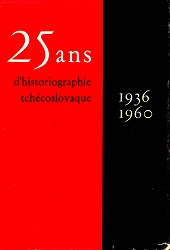
Published in 1960 by the Historical Department of the Czechslovak Academy of Sciences ( NAKLADATELSTVÍ ČESKOSLOVENSKÉ AKADEMIE VÉD )
More...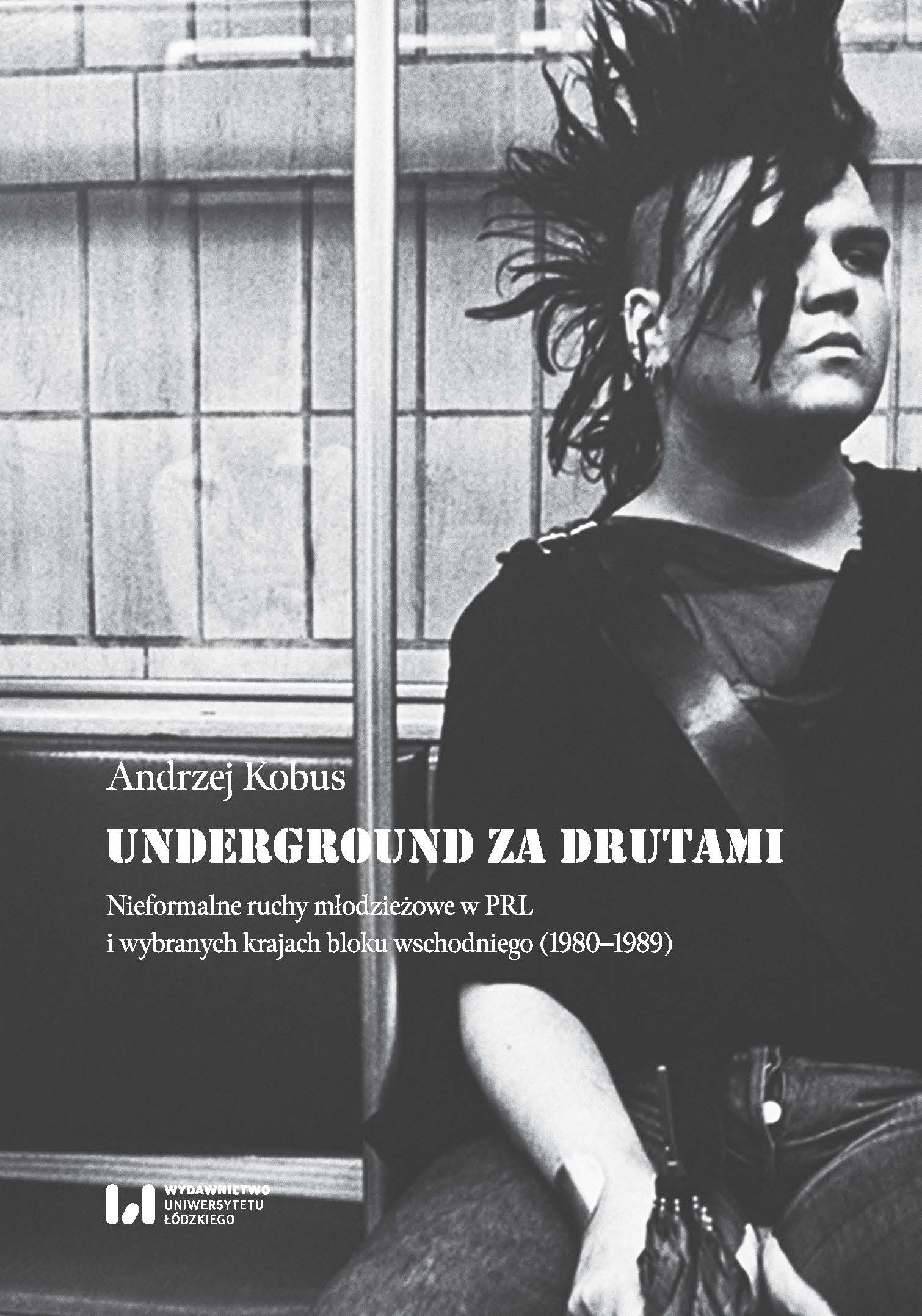
The monograph entitled Underground behind the Wires is devoted to informal youth movements active in the countries of Central and Eastern Europe in the 1980s. The author centres on the countries such as Poland, Czechoslovakia, the German Democratic Republic and the Soviet Union. The monograph sketches the emergence and development of musical subcultures as well as pro-environmental and pacifist youth circles from the aforementioned countries. The progression of informal youth religious movements, both connected with Christianity and Eastern religions, is also described. Particular emphasis is placed on the issues of contacts and cooperation between the circles in question, especially during the crisis and erosion of the communist system in the countries of The Eastern Bloc. The work closes with the elaboration of the position of youth subcultures during the period of political transformations that took place in the countries of Central and Eastern Europe in the 1990s. The content of the monograph is enriched by the visual material in a form of photographs depicting representatives of particular youth subcultures from the discussed Eastern Bloc countries. The security organs were interested in the activities of the circles under discussion, which is illustrated with the scans of the relevant documents.
More...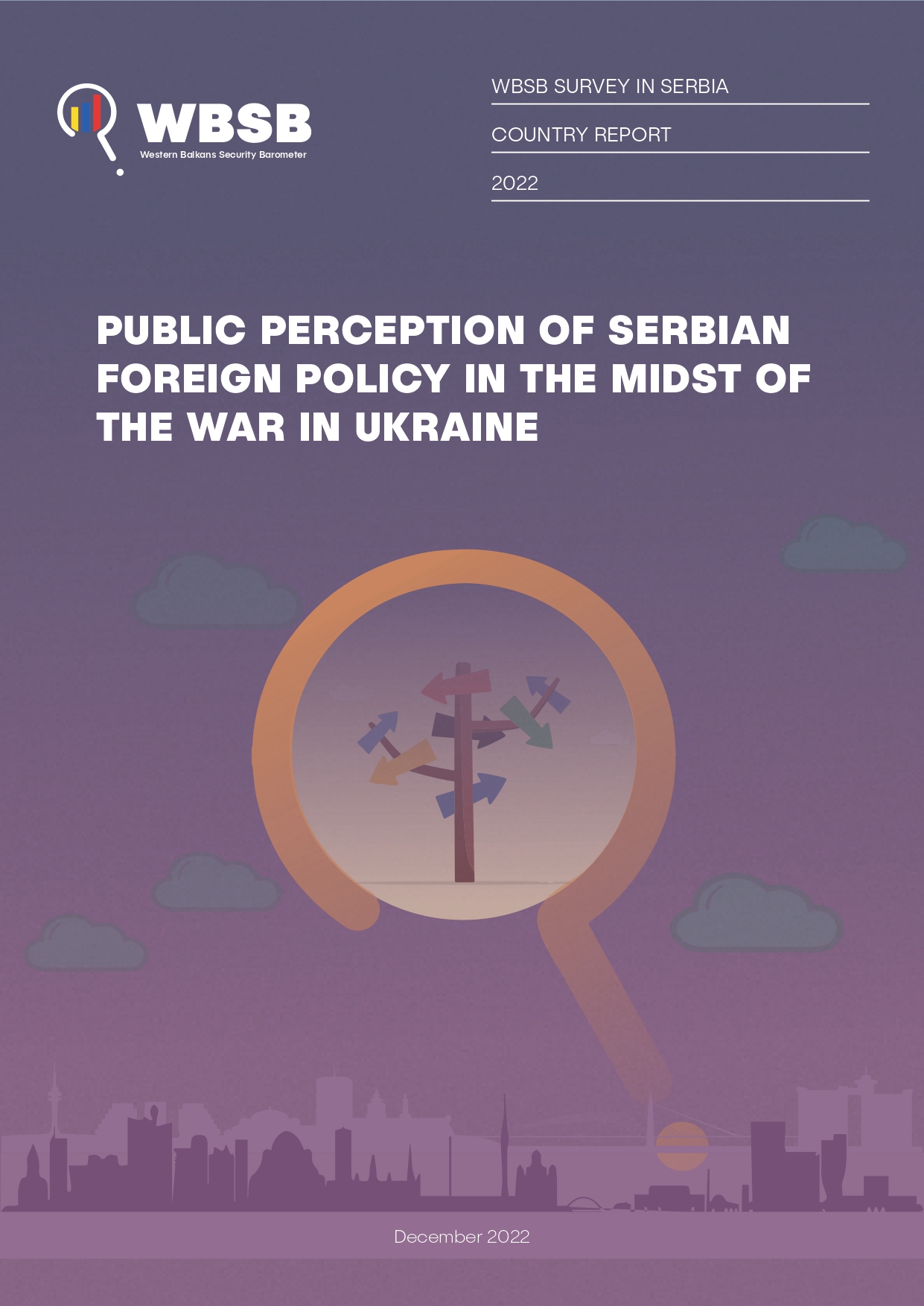
The war in Ukraine did not significantly affect the perception of the Serbian public regarding the major issues of Serbian foreign and security policy. In this context, this relates to how Serbian citizens think about the influence of great powers in their country and how the public perceives its relations with Russia and Western security institutions, the EU and NATO. The public opinion surveys also showed that the issue of Kosovo is still being perceived as a major foreign policy priority. There is a powerful cynicism in how the Serbian public views great power influences, as most respondents believe that external great powers bribe Serbian politicians and moguls to further their interests in the country. Russia and China are perceived as close foreign policy partners of Serbia, putting them in clear advantage over those who favour the EU on that front. The respondents also believed that Russia and China are sincere friends of Serbia and not players guided by their self-interest. As opposed to the study conducted by the Belgrade Centre for Security Policy (BCSP) in 2020, which noted that Serbs perceived Chinese influence in the country as more positive than Russian influence, the latest survey shows that those who believe Russian influence in Serbia is positive have a slight edge over those who believe the same about Chinese influence. This is most likely the result of the fact that China has not been in the spotlight in recent months. As opposed to Russia and China, the EU is being cynically perceived as a self-interested actor. On that same front, there are more of those who perceive the EU’s policies towards Serbia as hostile than those who perceive these policies as friendly. When it comes to perceptions of the US, the spectrum is dominated by those who perceive the US as a self-interested power and those who perceive it as an enemy of Serbia. The public also treats the issue of foreign direct investments (FDI) as important for the country’s foreign policy. However, the FDI are more likely to be considered highly important among those who favour the EU membership than among those who oppose the membership. Despite Russia’s invasion of Ukraine, the public opinion survey demonstrates that Russia is still a major vector in Serbian foreign policy. Extremely positive perception of Russia is a product of recent Serbian history but also of the radical pro-Russian narrative that was pushed for years in the pro-government media and tabloids. Serbian public largely subscribes to the Russian point of view on the Ukraine war, with the majority blaming NATO and the US for its outbreak. The majority of the Serbian public is against introducing sanctions against Russia, with the majority doing so on the ground that Serbia experienced sanctions in the 1990s. This fact demonstrates that Serbian perceptions of Russia are frequently based on historical experiences from the 1990s. Still, despite sympathies towards the Russian side in the ongoing war, the Serbian public is also showing a balanced take on some other issues, proving how deep the Serbian balancing act is embedded with the Serbian public. Most of the population believes that Serbia needs to maintain neutrality in the Russia-Ukraine war. In the same spirit, most respondents did not think there would be winners in the ongoing war between Russia and Ukraine since everybody would be at a loss. Similarly, the majority was willing to accept both Russians and Ukrainians fleeing the war, although the same welcoming stance was not displayed regarding the Russian deserters. Russia is still being perceived as the country’sgreatest friend and most important foreign policy partner. Some Serbian perceptions of Russia are unrealistic, as demonstrated by the fact that the majority believes that Russia will be the dominant power in the XXI century, not China or the US. In regards to the EU, the polls showed that although war generated hope among some in the Western Balkans that the new geopolitical crisis would give stronger impetus to the EU enlargement, that did not impact the perception of the EU in the Serbian public. Serbian citizens remain divided over the country’s possible membership in the EU. The survey also identified two clear trends. The first is the evident decline in support for EU integrations since the incumbent Serbian government came to power in 2012. The second trend is a rise in Euroscepticism and of the opponents of European integrations due to anti-EU messaging in the pro-government media and tabloids, particularly in the past five years. The polls clearly suggest a strong disappointment with the past twenty years of political transition, which is particularly acute among older generations that do not believe that the EU will ever accept Serbia as a member. Among the younger generations, the prevailing mood is that the EU will accept Serbia as a member, but not in the near future. Regarding NATO, security cooperation between Serbia and NATO is highly advanced, particularly regarding security crises in the north of Kosovo. Serbian officials frequently refer to NATO’s mission in Kosovo (KFOR) as a stabilising force. While it does not aprire to become a member, Serbia is a member of NATO’s Partnership for Peace (PfP) programme, exercising within this programme Individual Partnership Action Plan (IPAP), the higest level of cooperation between NATO and non-member states. 1 However, the Serbian public continues to view NATO negatively. Most respondents view NATO as the enemy and a self-interest geopolitical player. In the surveys, those who are against NATO membership for Serbia and in favour of neutrality are a powerful majority. In public, there is also a mood that Serbia, on security and military matters, should cooperate with Russia and China more than it does with NATO. The public is also sharply against any cooperation with NATO, while those in favour of cooperation with NATO are in favour as long as Serbia maintains its neutral status. The war in Ukraine additionally worsened Serbia’s perception of NATO, which continues to be burdened with the legacy of the 1999 Kosovo war. The surveys established the sharp divide as those who watch pro-government media are against NATO membership, while those in favour of membership are more likely to watch opposition media. The survey also established that the issue of Kosovo continues to dominate the foreign policy agenda for the Serbian public, as the majority of respondents view the issue as very important for the country’s foreign policy. What was striking was the salience of the Kosovo issue for the younger generations in Serbia. The research also established that those who view Kosovo as important are more likely to oppose EU membership for Serbia. Most of those favouring EU membership also view Kosovo as important. There are also nuances, as those who emphasise Kosovo are more likely to blame Ukraine and the West for the outbreak of the Ukraine war. This fact shows how the legacy of the 1999 war continues to shape the Serbian public’s perception of contemporary affairs. Those who do not consider Kosovo a priority for Serbian foreign policy are more likely to blame Russia for the war and be more likely to favour Serbia introducing sanctions against Russia. However, for those who are against the sanctions, Kosovo is less of a factor in shaping their preferences than the fact that Serbia experienced sanctions in the 1990s and the perception of Russia as Serbia’s greatest friend.
More...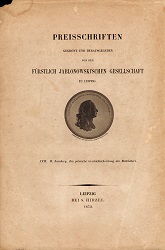
The awarding society had left it up to the applicants to look at the manuscript material themselves and use new ones, either in a similar way to Palacký in his "Appraisal of the Bohemian Historians," or, as Wattenbach had done in "Deutschlands Geschichtsquellen im Mittelalter", to deal with published and elaborated work with independent penetration of the material. The means at my disposal guided me on the second way, but in such a way that, where handwriting was available, this was also used. I felt I had to do this all the more because, as already indicated above, some sources that needed to be discussed have not yet been printed, and the position of some printed sources can only be understood through the manuscripts. The bibliographical evidence also had to be more complete here, where Potthast is not sufficient despite his merits, the presentation, since the work of earlier researchers only served as reliable support in a few cases, often held the middle between those two masters. The nature of both, however - the critical sharpness of the one, the presentation skills of the other - will always remain unmatched and it can be a comfort to those who follow from afar that this confession recently had to be made by a much more important side.
More...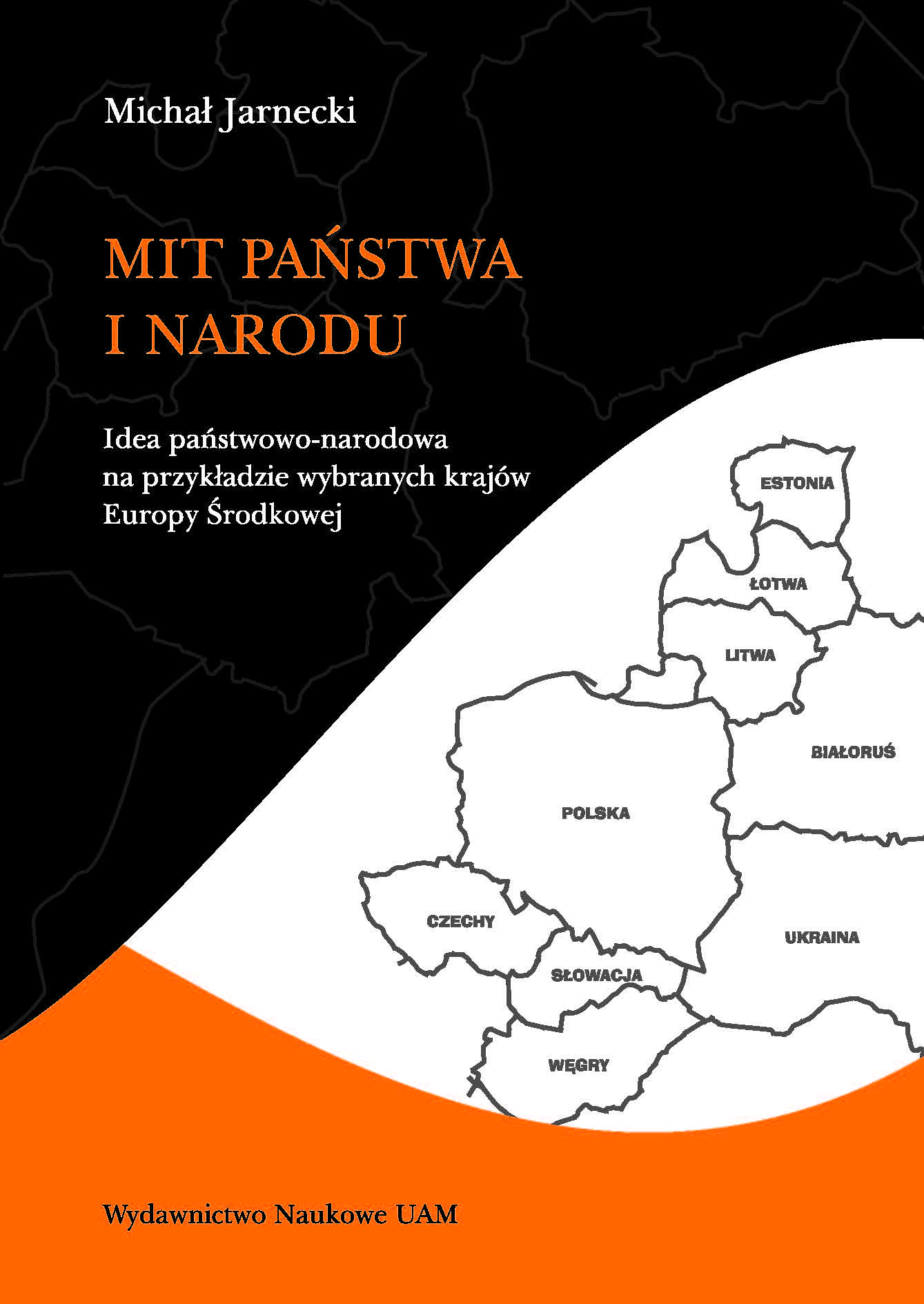
The book summarises the author's own research into the history of Central Europe, the Polish-Czech-Ukrainian triangle and the cultural heritage of Poland, Ukraine and Belarus. It raises the vital and topical issue of the state myth, the national idea, and nationalism in selected Central and Eastern European countries (Poland, the Baltic States, the Czech Republic, Slovakia, Hungary, Ukraine and Belarus). Although there is much that divides these countries, they also have many things in common. Together, they emerged as independent after the First World War and faced two totalitarianism systems. They have gone on to build a system of liberal democracy, even though the pressure of current problems and the shadow of history gives populism a chance. Starting from definitions and conceptual issues, the author traces recent history through concrete examples, focuses on the 20th century, and reaches where necessary into the more distant past. He shows how the aspiration to gain or regain independence, the national idea and the myth of the ethnic state, shaped and strengthened the consciousness of the analysed communities. In the final chapters, he presents Ukrainian and Belarusian issues, two routes out of the sphere of Russian influence, albeit one unsuccessful. Ukraine, on the other hand, although bathed in blood by the onslaught of its neighbour to the east, seems to be surviving and strengthening its statehood and, ultimately, building a nation.
More...